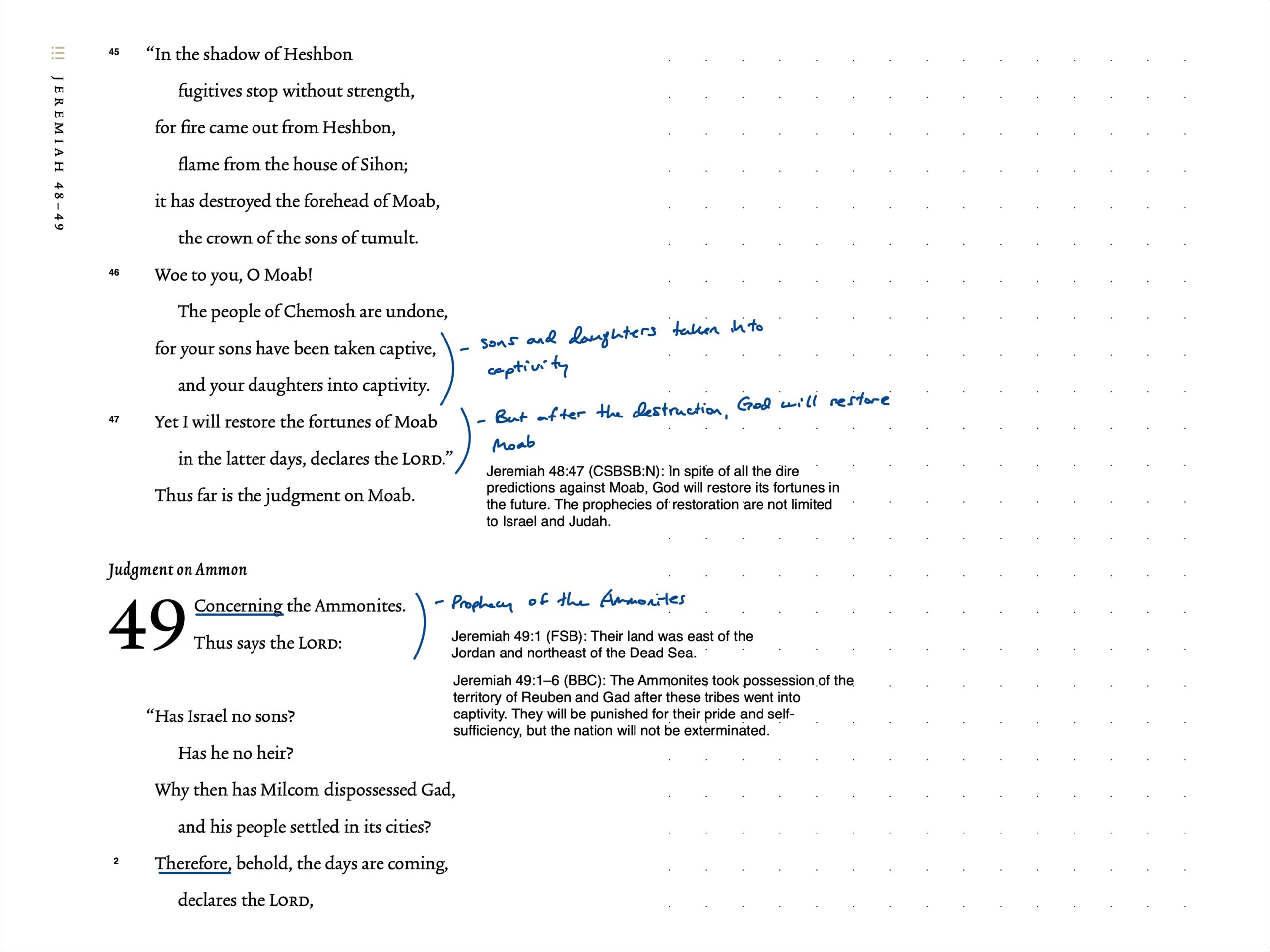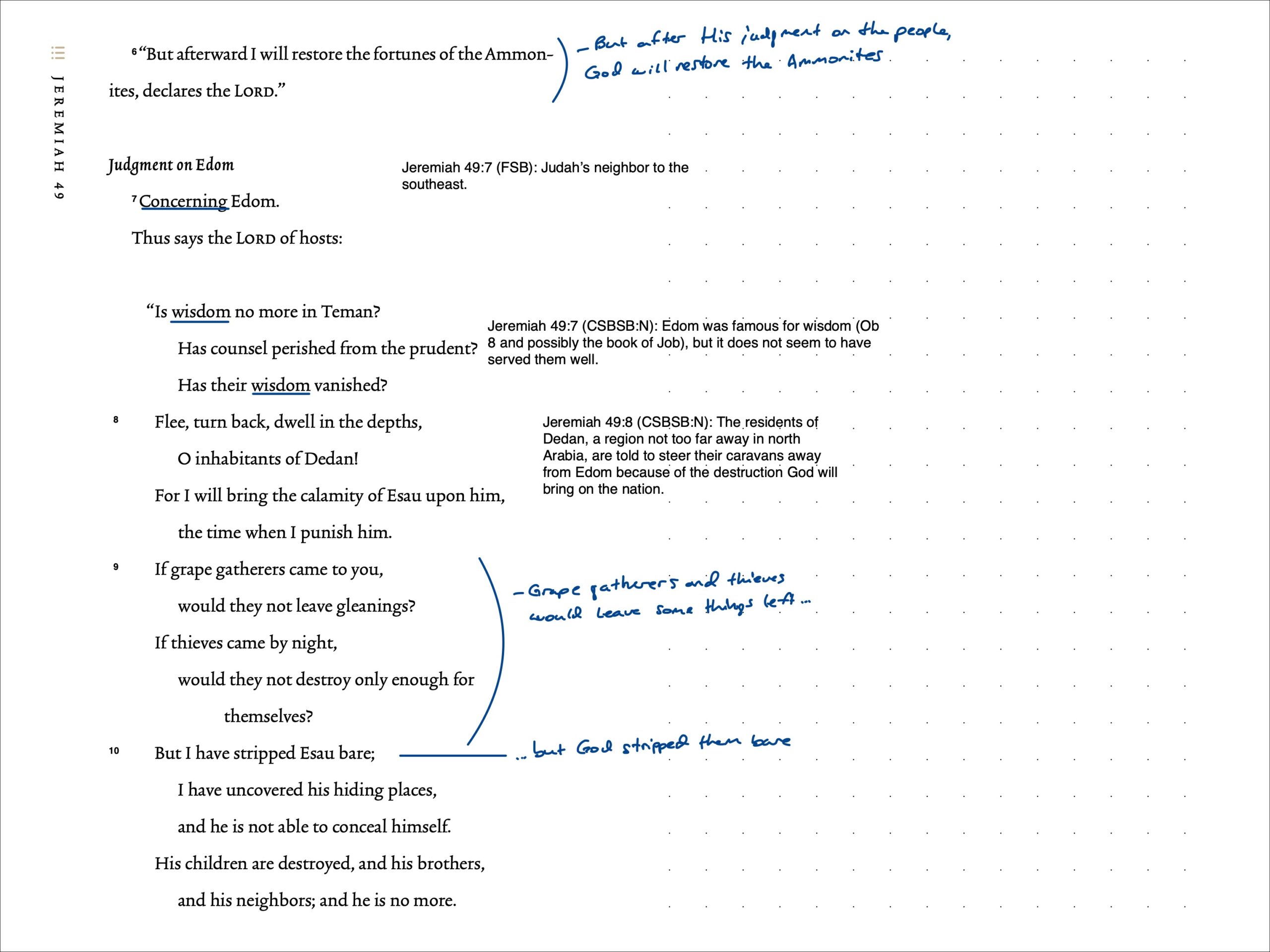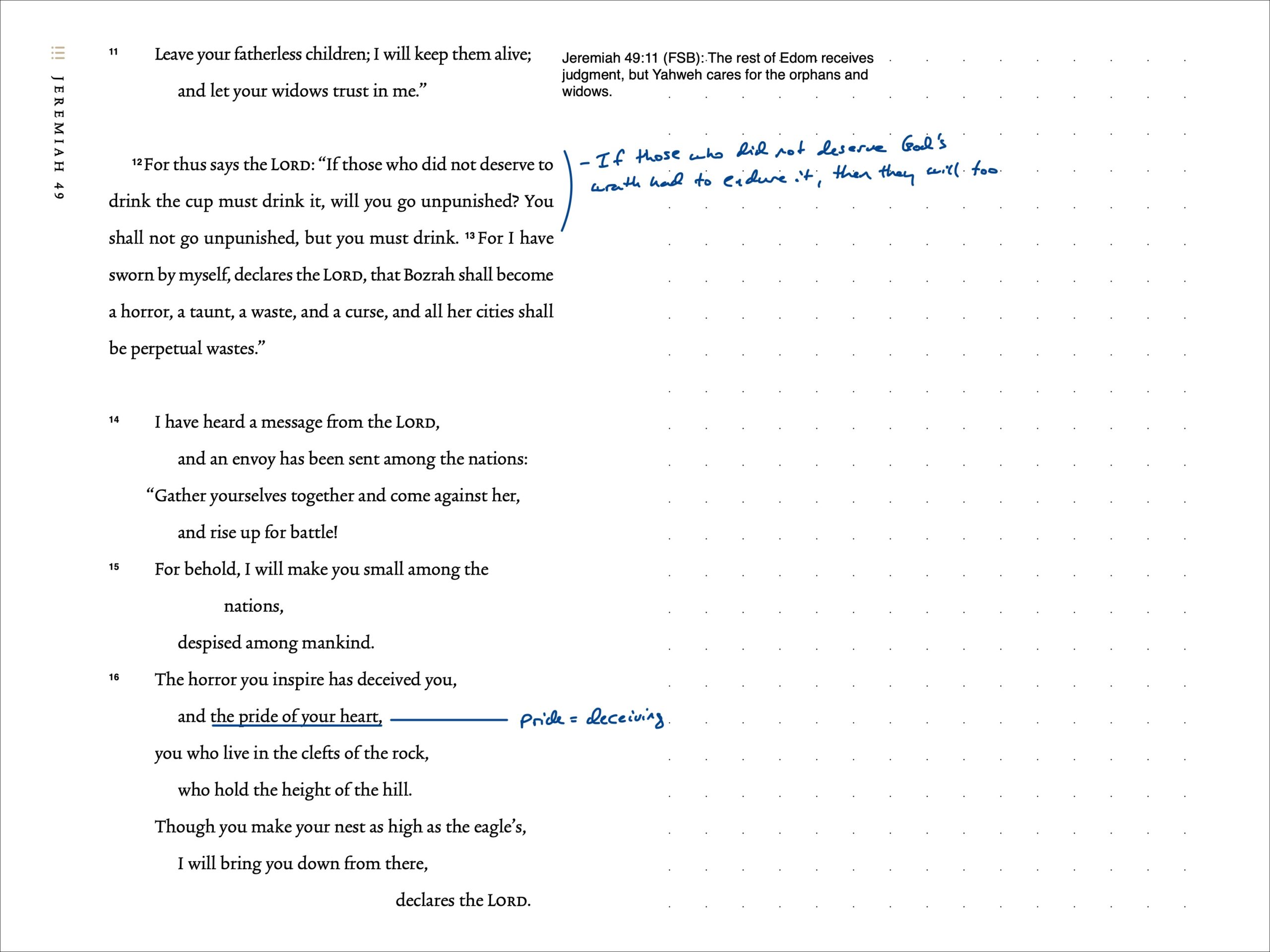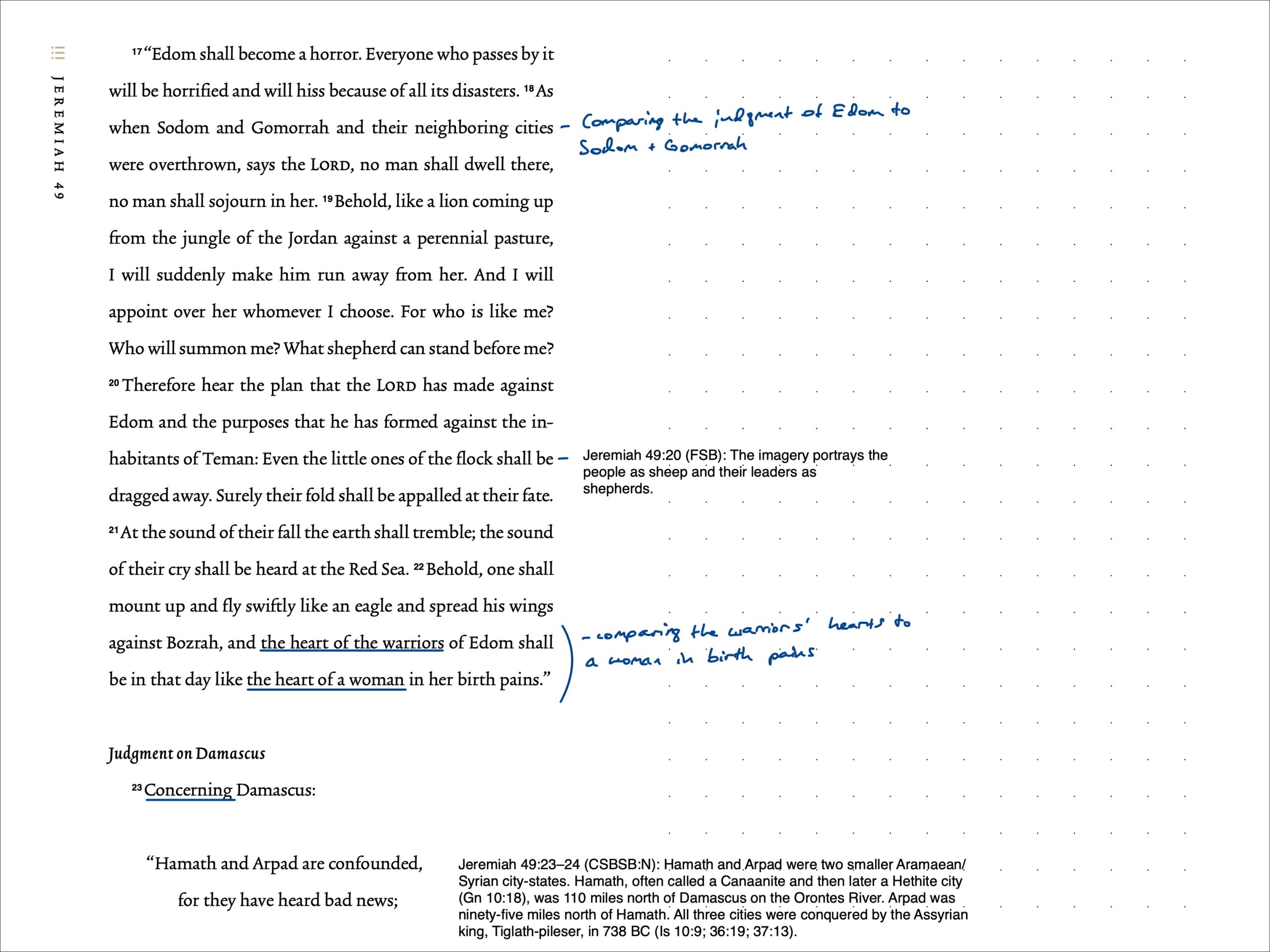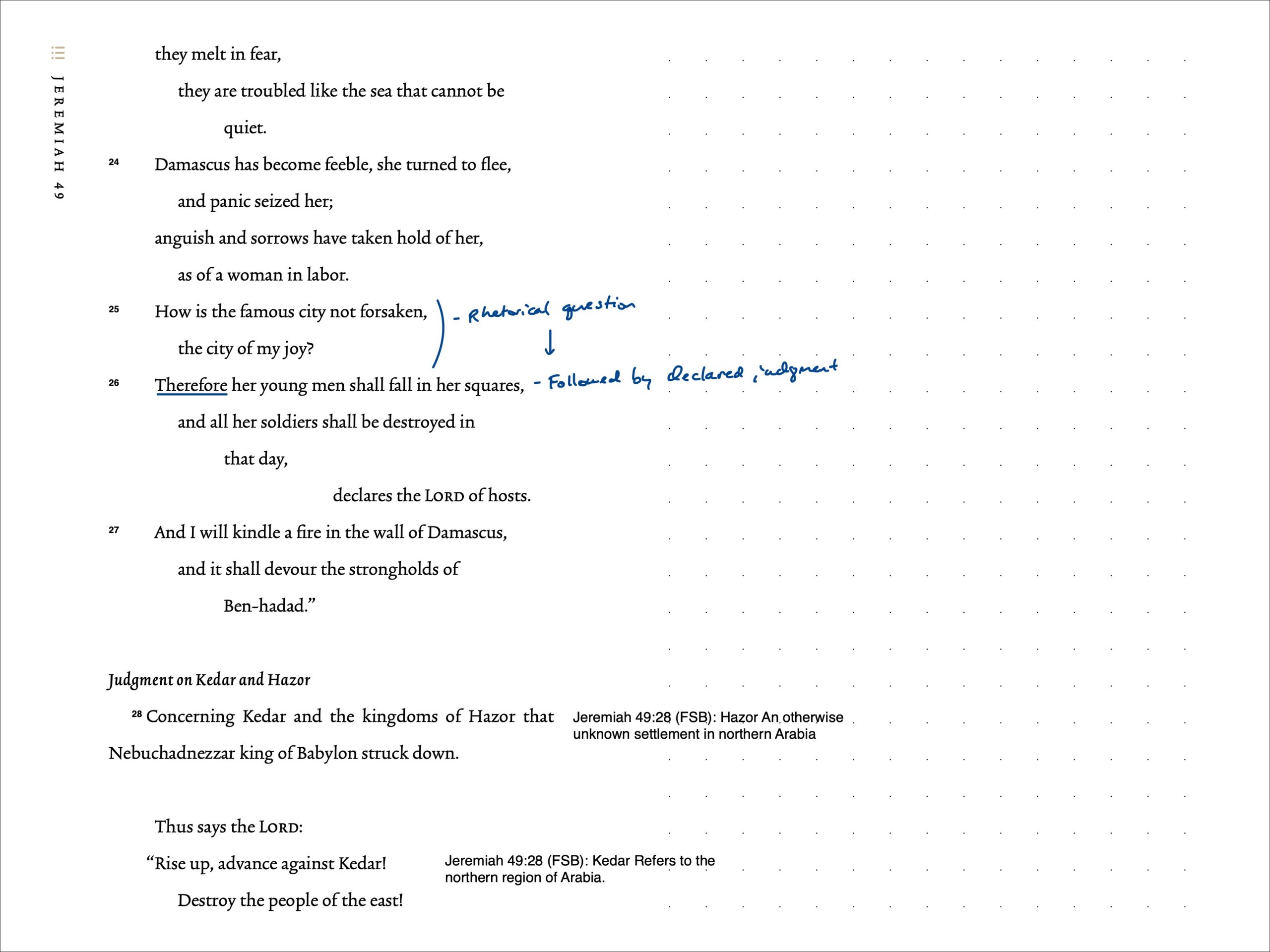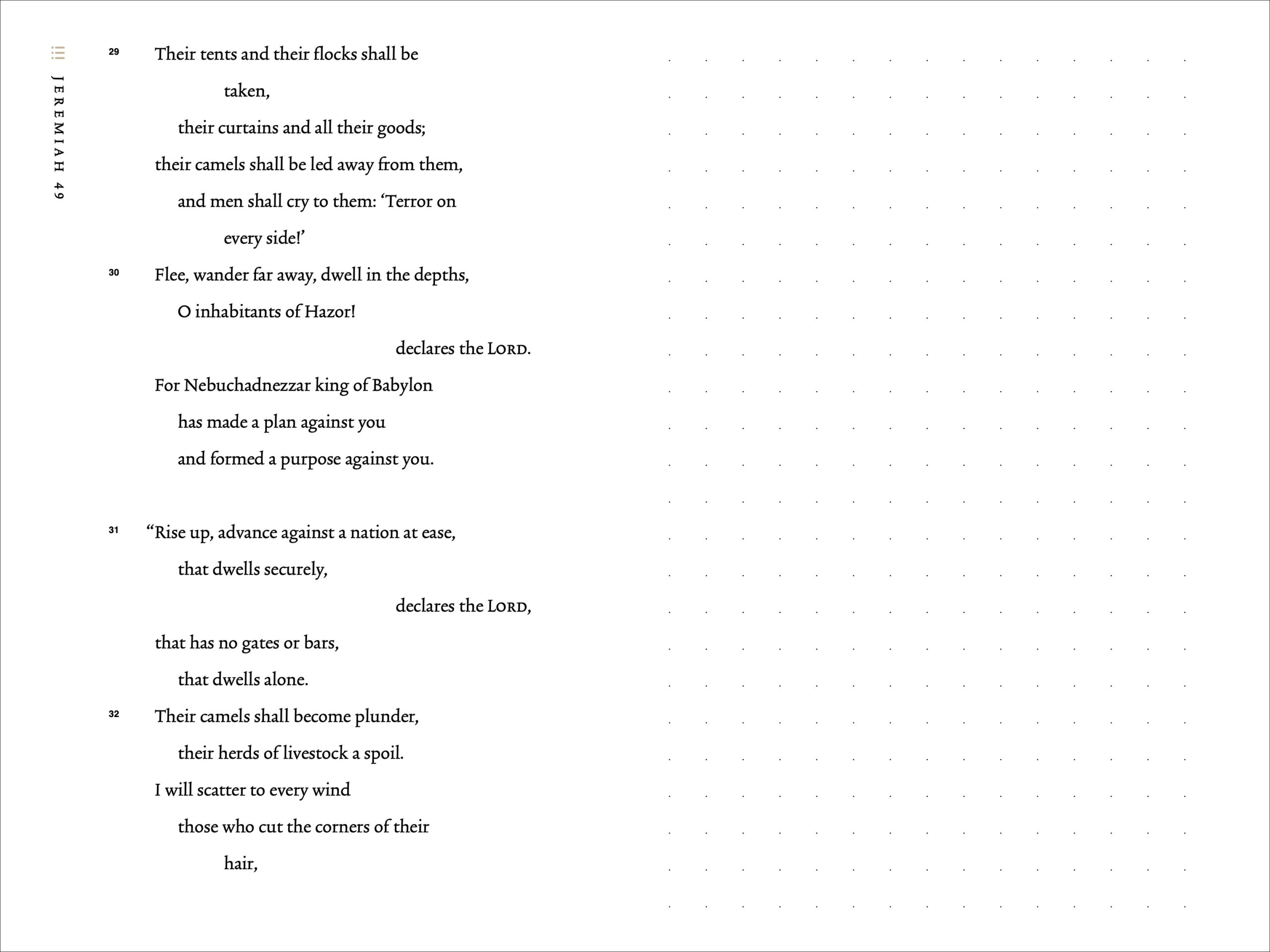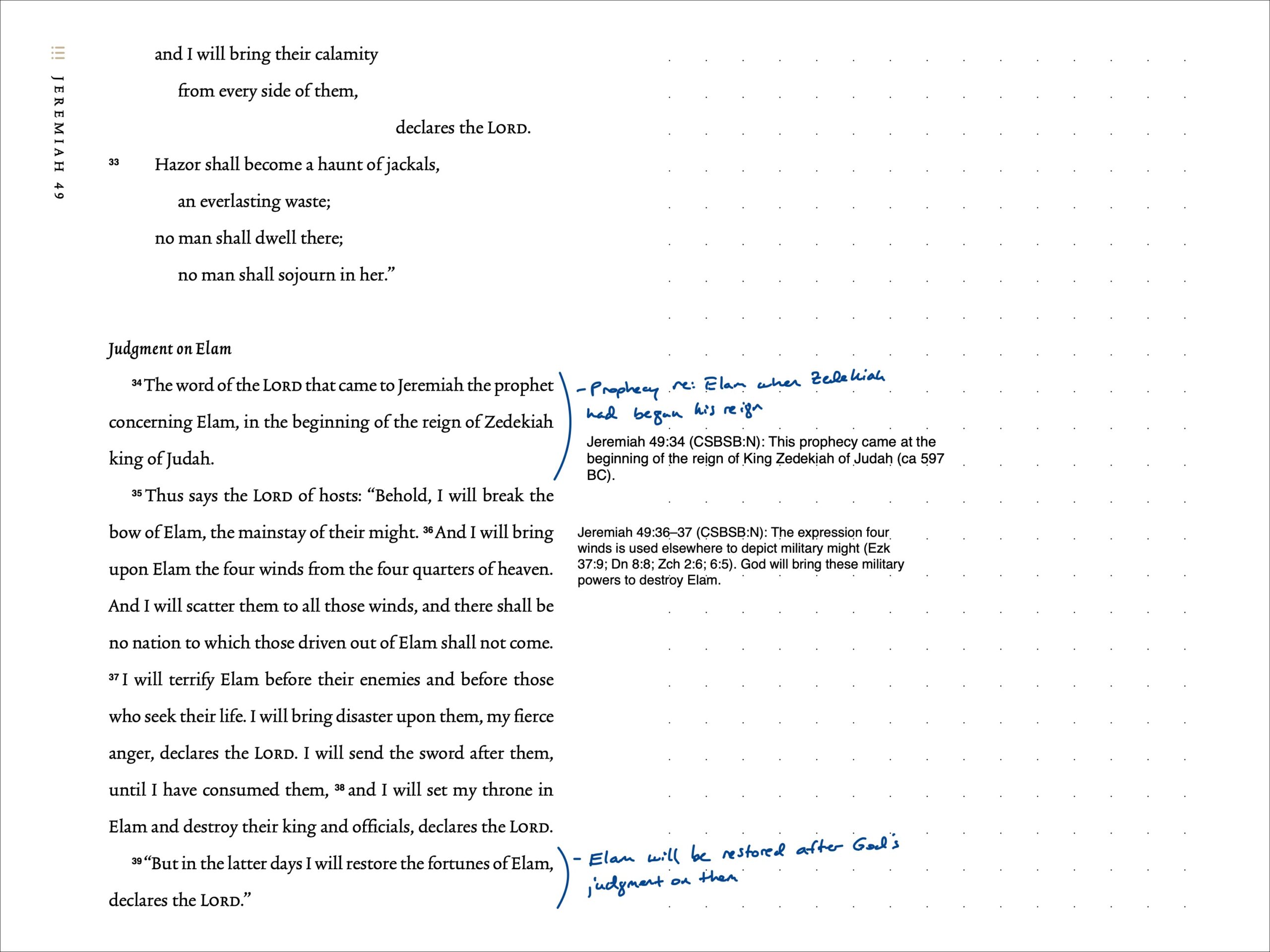| Date | Version | Reading Plan |
|---|---|---|
| @August 12, 2023 | ESV (2016) | ESV Prophets Plan 2023 |
Pericopes
- Judgment on Ammon
- Judgment on Edom
- Judgment on Damascus
- Judgment on Kedar and Hazor
- Judgment on Elam
Notes
The chapter opens with a prophecy concerning the Ammonites whose land was east of the Jordan and northeast of the Dead Sea. The Ammonites took possession of the territory of Reuben and Gad after these tribes went into captivity. They will be punished for their pride and self-sufficiency. The result of relying on worldly provision will be judgment but God will not make of them a full end (Jer. 49:6).
Jer. 49:7-22 represents an oracle against Edom, Judah’s neighbor southeast of the Dead Sea and one of Israel’s most bitter enemies. They were famous for their wisdom, but it did not seem to have served them well (Jer. 49:7). A contrast is made between grape gathers and thieves and God, the former leaving some things left while the latter stripped them bare (Jer. 49:9-10). Edom will receive God’s judgment but will spare the fatherless and widows (Jer. 49:11).
Jer. 49:23-27 is an oracle against Damascus, the capital city of Syria. Damascus was Israel’s enemy to the north and another traditional enemy (1 Kings 11:24-25; 2 Kings 8:7-9). Two specific cities are cited in this section, Hamath and Arpad. Hamoth was 110 miles north of Damascus on the Orontes River and Arpad was 95 miles north of Hamath. All of these cities were conquered by the Assyrian king, Tiglath-pileser, in 738 BC (Isaiah 10:9; Isaiah 36:19; Isaiah 37:13).
Jer. 49:28-33 is an oracle against Kedar and Hazor. Kedar refers to the northern region of Arabia while Hazor is an otherwise unknown settlement in northern Arabia. God’s judgment will come upon Hazor who shall “become a haunt of jackals, an everlasting waste” and “no man shall sojourn in her.” (Jer. 49:33)
Jer. 49:34-39 closes the chapter with an oracle against Elam at the beginning of the reign of Zedekiah, king of Judah, in 597 BC. God says that He will “bring upon Elam the four winds from the four quarters of heaven” (Jer. 49:36) which an expression of military might used elsewhere in Scripture (Ezek. 37:9; Dan. 8:8; Zech. 2:6; Zech. 6:5). However, following His judgment of Elam, God will restore their fortunes “in the latter days” (Jer. 49:39).
Application
Again in this chapter we see God’s perfect balance of justice and mercy. The depictions of destruction are targeted and detailed for each region, but several times God promises restoration or care for specific people (Jer. 49:6; Jer. 49:11; Jer. 49:39). However, it is worth noting not every land is told that they will be rebuilt. Ammon, the Edomite fatherless and widows and Elam are told they will be brought back after judgment but no such mention is made for Damascus, Kedar and Hazor. The latter group may have experienced an eventual return of prosperity (ex. Damascus remains the capital of Syria today), but this sheds light on something important.
God is fully sovereign and has unbridled reign to bless and/or enact judgment on whoever He chooses. This can be very difficult for us to grasp and, from our position of finitude, we can step into territory not our own, making improper claims of fairness and justice. In these times, it’s important to see what God says about Himself in His Word: “I will have mercy on whom I will have mercy, and I will have compassion on whom I will have compassion.” (Ex. 39:19). Our posture should be of praise; that we serve a God that would have mercy and compassion on a wicked and underserving people such as we are.
Scripture Journal Notes
Commentaries & Resources Used
- ESV Study Bible. (Wheaton, IL: Crossway, 2008)
- Faithlife Study Bible (Lexham Press, 2016)
- Believer’s Bible Commentary (Thomas Nelson, 2016)
- CSB Study Bible Notes (Holman Bible Publishers, 2017)
- Matthew Henry’s Commentary on the Whole Bible (Guardian Press, 1976)
- The Bible: A Reader’s Guide (Sterling Publishing, 2011)
- The Infographic Bible (Zondervan, 2018)
- ESV Digital Scripture Journal (Crossway, 2019)
